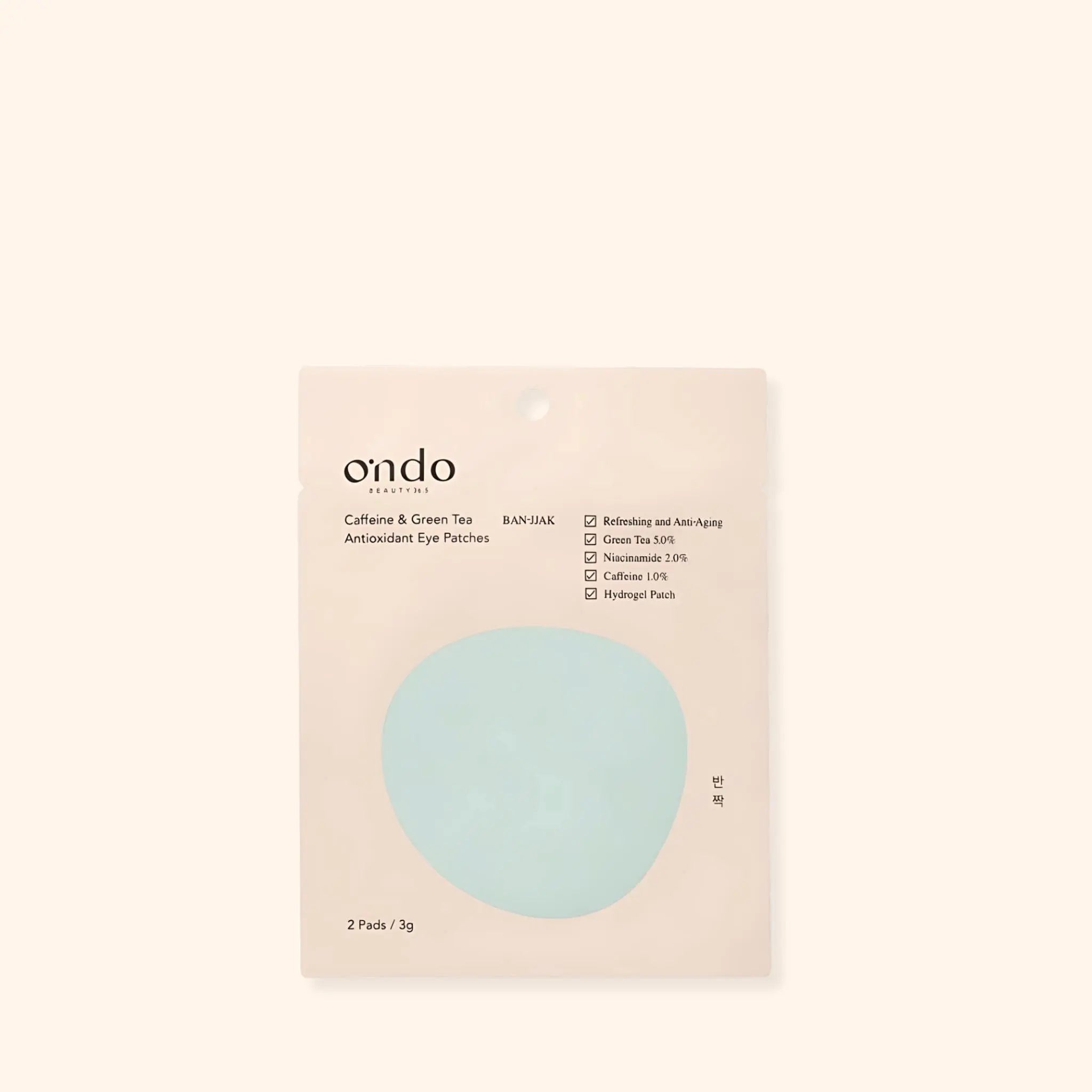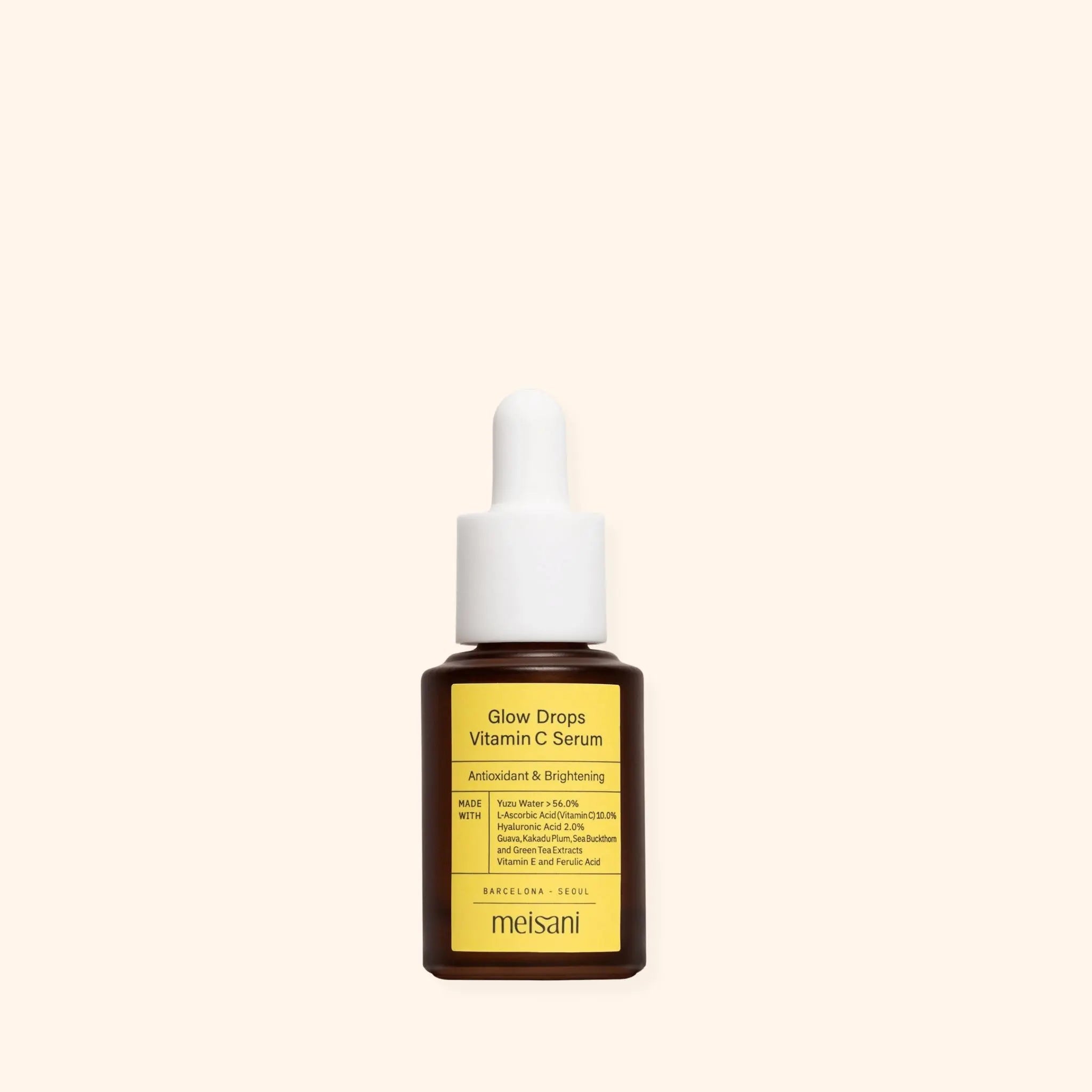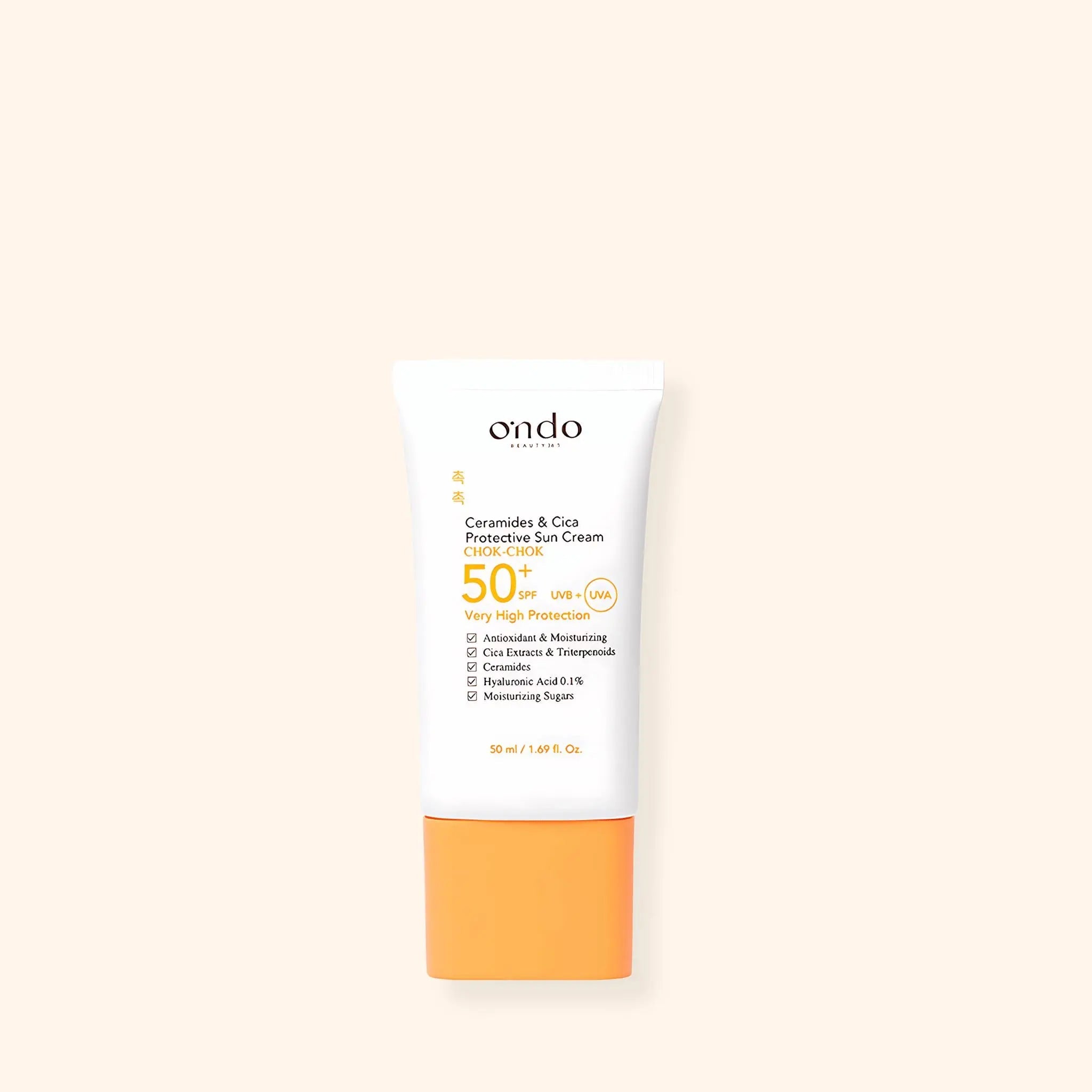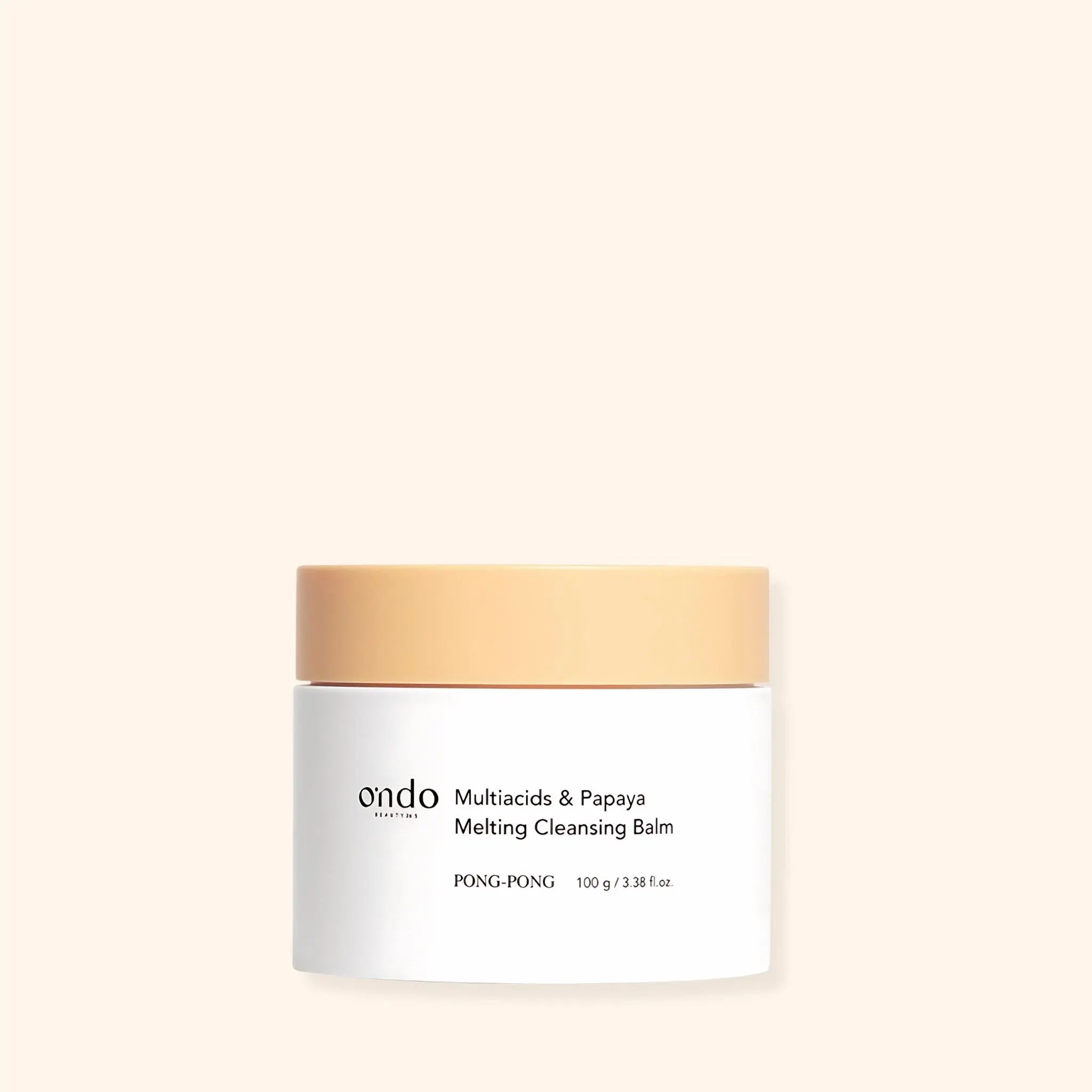Unravel the Secrets of Korean Skincare Exfoliation for Glowing Skin
The Science Behind Exfoliation
The quest for flawless skin has led many down the rabbit hole of skincare rituals. Among the vital steps, exfoliation often emerges as a game-changer. With its roots traced back to ancient beauty rituals and now cemented in modern science, exfoliation holds the key to vibrant skin. Imagine looking in the mirror and seeing a complexion that's vibrant, smooth, and radiantly youthful. The secret? Exfoliation.
At its core, exfoliation involves the removal of dead skin cells from the epidermis, the skin's outermost layer. As skin cells die and become compacted with keratin, they accumulate on the skin's surface, leading to a dull appearance and potential pore blockage. Exfoliation accelerates the skin's natural process of shedding these cells, revealing the fresher skin underneath.
Why Should You Exfoliate?
Scientifically speaking, our skin naturally regenerates every 28 days or so2. However, factors like aging, environmental stressors, and UV damage can slow this process. Regular exfoliation aids in cell turnover, promoting a healthier complexion, and allows for better absorption of skincare products3. Think of it as giving your skin the fresh start it so deserves! It’s not just about achieving a luminous complexion; it’s about ensuring every droplet of our Manggo Skincare serums penetrates deep, delivering its magic!
The 10-Step Korean Skincare Routine
- Oil-Based Cleanse: Initiates the double cleanse, breaking down makeup and sunscreen. Read more about oil-based cleansing here.
- Water-Based Cleanse: Further cleans the skin, ensuring all remnants of dirt and makeup are removed. Dive into water-based cleansing.
- Exfoliation: Typically sits between the double cleanse (oil-based followed by water-based) and the application of toner. This placement ensures clean skin ready for the exfoliating process, and then the toner can balance the skin's pH afterward.
- Toner: Balances the skin's pH after exfoliation. Unravel the importance of toners.
- Essence: A hydration step, prepping the skin for subsequent products. Why is essence a game-changer?
- Treatments: Includes serums and ampoules targeting specific skin concerns. Explore the power of treatments.
- Sheet Masks: Offer deep hydration and targeted treatments. Delve into the world of sheet masks.
- Eye Cream: Address concerns around the delicate eye area. Learn about eye care essentials.
- Moisturizer: Locks in hydration and ensures skin remains nourished. The importance of moisturizing.
- Sunscreen (AM) / Night Cream (PM): Sunscreen defends against UV damage, while a night cream nourishes overnight. Get informed about sun protection.
Physical vs. Chemical Exfoliants: The Great Debate
Exfoliants come in two primary categories: physical and chemical. While both exfoliants aim to shed dead skin cells, their methodologies vary, and this difference can significantly impact the skin.
Physical Exfoliants
Physical exfoliants utilize tiny, gritty particles to physically scrub away dead skin cells. They've long been featured in traditional skincare routines. Yet, while they can give an immediate feeling of smoothness, there's a downside. Using them on the face, especially with a heavy hand, can be abrasive. This roughness can lead to microtears in the skin's surface, making it more vulnerable to irritants and sensitivity.
Chemical Exfoliants: The Rising Star
Chemical exfoliants are changing the game. Instead of scrubbing, they use active ingredients like AHAs and BHAs to dissolve and lift away dead skin cells. Their transformative properties offer:
- Precision: They work on a molecular level, ensuring thorough exfoliation without the risk of physical damage.
- Benefits Galore: From boosting collagen production to refining skin texture and reducing the appearance of fine lines, they're a powerhouse.
- Gentleness: Unlike their physical counterparts, they're typically less harsh on the skin, making them ideal for regular facial use.
In the world of exfoliation, while physical exfoliants have their place, chemical variants are increasingly being recognized for their efficacy and skin-friendly properties. For those looking to rejuvenate their skin without the abrasive action, chemical exfoliants are a clear winner.
Choosing the Right Exfoliant for Your Skin Type
Selecting the appropriate exfoliant is a nuanced process, deeply anchored in understanding one's skin type. Remember, everyone's skin is unique, and what works for one might not necessarily suit another.
Sensitive Skin
Sensitive skin often requires a gentle touch. Harsh exfoliants can lead to irritation, redness, or even flare-ups. If you fall into this category, you might want to consider gentle chemical exfoliants like mandelic acid. Derived from almonds, mandelic acid is both mild and effective, ensuring you receive the benefits of exfoliation without potential drawbacks.
Oily or Acne-Prone Skin
For those with oilier complexions or those prone to breakouts, more robust exfoliation can be beneficial. Salicylic acid, a type of beta-hydroxy acid (BHA), is especially effective for this skin type. It not only exfoliates the skin's surface but also penetrates deeper to unclog pores, which can be particularly advantageous in managing acne.
Dry or Mature Skin
Dry or mature skin can benefit immensely from glycolic acid, a type of alpha-hydroxy acid (AHA). Glycolic acid aids in breaking down and shedding dead skin cells, promoting skin hydration, and stimulating collagen production. This can lead to smoother skin and reduced appearance of fine lines.
Combination Skin
For those who feel they're in between—neither too oily nor too dry—lactic acid might be your exfoliating best friend. Derived from milk, lactic acid offers gentle exfoliation, making it suitable for combination skin types looking for balance.
Still unsure about what exfoliant might be the best fit for your skincare needs? Don't fret. At Manggo Skincare, we're here to guide you every step of the way. Dive deeper and find your perfect match with our skin type quiz.
How Often Should You Exfoliate?
Exfoliation is a skincare boon, but there's a fine line between rejuvenating the skin and over-stressing it. Especially for newcomers to exfoliation, moderation is essential. While most individuals find that exfoliating their face twice a week strikes a balance between rejuvenation and maintaining natural oils, those with an oilier complexion might lean towards more frequent sessions. However, over-zealous exfoliation can lead to issues like dryness, itching, and redness, especially in sensitive regions like the face.
Age is another determinant in your exfoliation routine. Younger skin experiences a cell turnover roughly every 28 days, but as we age, this cycle extends to nearly 45 days. This suggests that mature skin might benefit from a slightly reduced frequency, perhaps once a week. Expert skincare voices, like Farber and Burns, stress the importance of starting gently and being attuned to your skin's response. They also emphasize the need to adhere to product guidelines, especially when it concerns how long an exfoliant should remain on the skin.
When Should I Exfoliate? Decoding the Best Times
The timing of exfoliation can influence the benefits you reap. Here’s a breakdown to guide you through the optimal moments to exfoliate and when to skip it.
Night is Right
Exfoliating during the nighttime is often considered the golden hour. Why? Each exfoliation session reveals a newer layer of skin, leaving it slightly more sensitive and vulnerable than usual. By exfoliating at night, you give your skin the advantage of reduced exposure to harmful UV rays and free radicals. Plus, the nighttime allows your skin to heal and rejuvenate as you drift into sleep. But remember, post-exfoliation, your skin can be more susceptible to the sun. So, the next day, ensure you're generous with your SPF application to provide ample protection.
Caution Post-Treatments
Exfoliation has its moments, and immediately after certain treatments isn't one of them. If you've just indulged in a facial or another skin-centric treatment, give your skin some breathing room. Hold off on exfoliating for about a week. This ensures your skin isn't subjected to undue stress, which can adversely affect its health. Similarly, while it's beneficial to exfoliate before hair removal methods like waxing or shaving, it's best to hit the pause button post-treatment. Wait a few days before you reintroduce exfoliation, ensuring your skin remains calm and happy.
By tailoring your exfoliation timing, you ensure that your skin receives optimal benefits without any unintended repercussions. Always remember to listen to your skin's cues and adapt accordingly.
Do's and Don'ts of Exfoliation
Navigating the world of exfoliation can be tricky. To simplify, here's a quick list of the best practices and pitfalls to avoid.
Do's
- Do Start Slowly: Especially if you're new to exfoliation, begin with a mild exfoliant and gradually increase the frequency as your skin adjusts.
- Do Moisturize After: Exfoliation can strip the skin of its natural oils. Replenish it with a good moisturizer to maintain hydration.
- Do Wear Sunscreen: Exfoliated skin can be more sensitive to UV rays. Protect your skin with a broad-spectrum SPF, especially the day after.
- Do Listen to Your Skin: If your skin reacts negatively, take a break. Always prioritize your skin's comfort and health.
Don'ts
- Don't Over-exfoliate: More isn't always better. Overdoing can cause dryness, redness, or breakouts.
- Don't Use Expired Products: Like all skincare items, ensure your exfoliants are fresh and not past their expiration dates.
- Don't Combine Multiple Exfoliants: Unless you're advised by a professional, using multiple exfoliating products simultaneously can be harsh on the skin.
- Don't Ignore Irritation: If you experience prolonged redness, itchiness, or peeling, it might be a sign to dial back or change your exfoliation product.
In Conclusion
Exfoliation is a transformative step in any skincare routine, revealing brighter, smoother, and more radiant skin. But, like all good things, it requires balance. By understanding your skin's unique needs and adhering to best practices, you're set on a path to achieve a healthy, glowing complexion. Always remember, skincare is a journey, not a destination. Take your time, experiment responsibly, and find what truly works for you.






